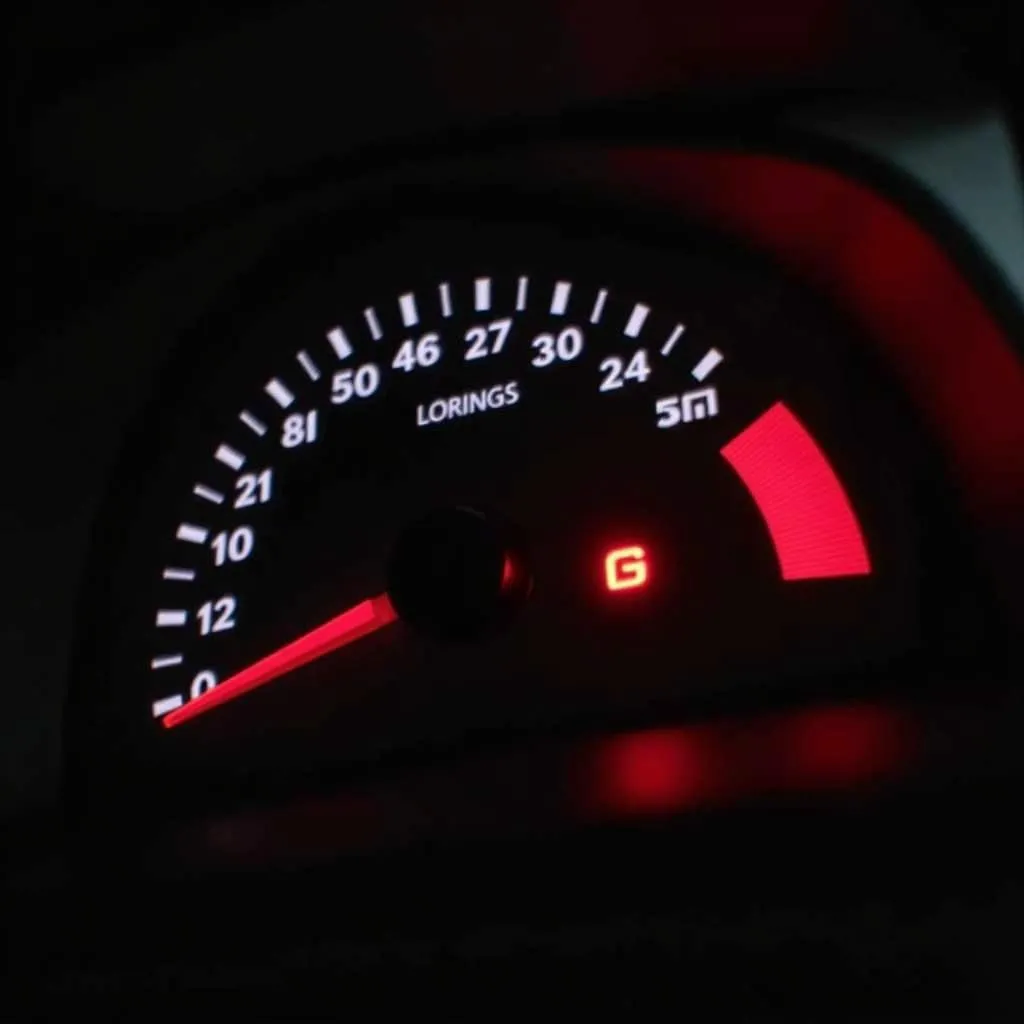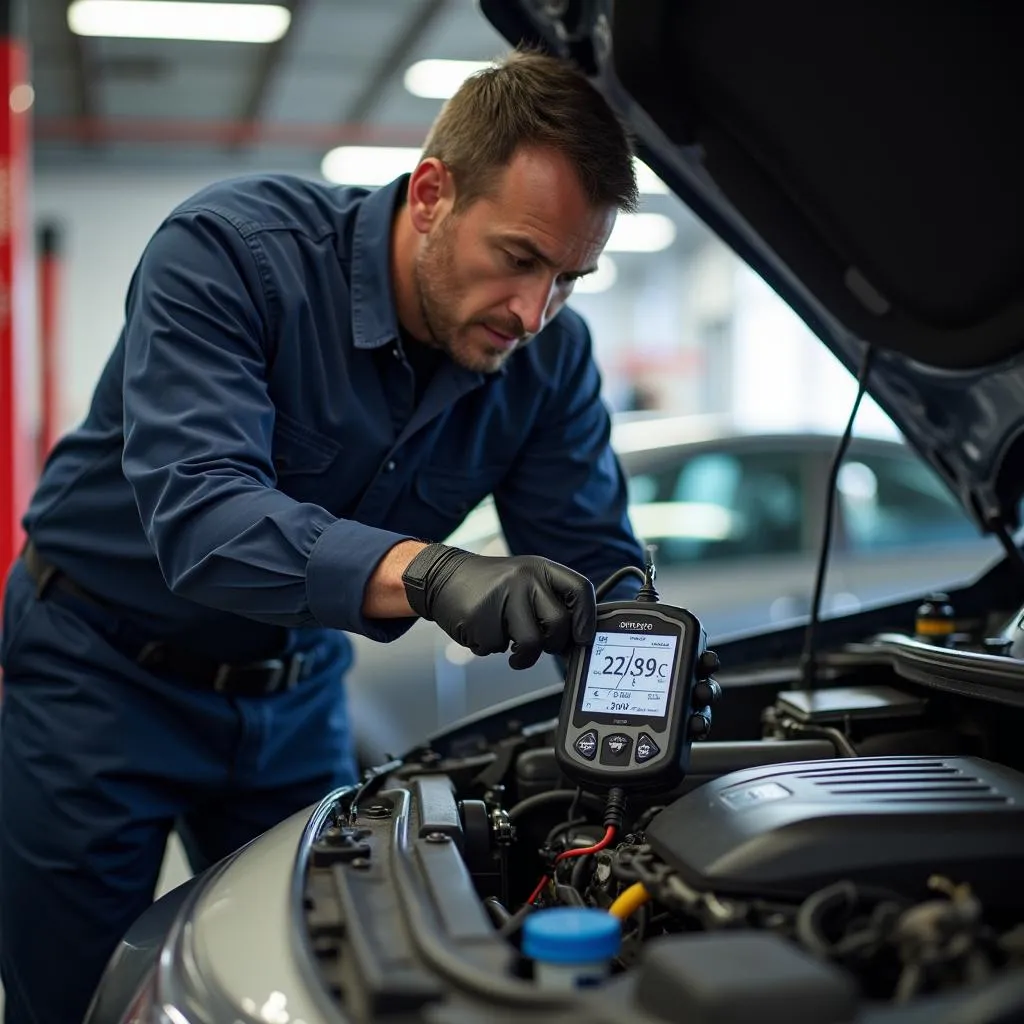Overheating Normal Car Temperature Gauge: What You Need to Know
Imagine this: you’re cruising down the Pacific Coast Highway, California sun on your face, wind in your hair, when suddenly, you notice your car temperature gauge creeping higher. It’s not in the red yet, but it’s definitely above its usual spot. Is this “overheating normal,” or is your trusty vehicle on the verge of a meltdown?
Understanding the Situation: What Does “Overheating Normal” Even Mean?
From a mechanic’s perspective, there’s no such thing as “overheating normal.” An engine operating at an elevated temperature is a cause for concern, regardless of whether it’s reached critical levels. Michael Turner, author of “Automotive Thermodynamics Simplified,” states, “Even a slight increase in operating temperature can indicate an underlying issue that, if ignored, could lead to catastrophic engine failure.”
Technically speaking, your car’s cooling system is designed to maintain the engine within a specific temperature range, typically between 195°F and 220°F (90°C – 104°C). This range allows for optimal combustion and minimizes wear and tear. When the temperature gauge rises above this range, it’s a clear sign that something is amiss.
Decoding the Warning Signs: Why is My Car Running Hot?
So, why is your car running hotter than usual, even if it’s not officially “overheating?” Several culprits could be at play:
- Low Coolant Level: The most common culprit is a low coolant level. Coolant (also known as antifreeze) absorbs excess heat from the engine, keeping it from getting too hot. If the coolant level is low due to a leak or lack of maintenance, your engine will start to overheat.
- Faulty Thermostat: The thermostat regulates the flow of coolant through the engine. If it gets stuck in the closed position, it can restrict coolant flow and cause the engine to overheat.
- Failing Water Pump: The water pump circulates coolant throughout the engine. A worn-out water pump can fail to circulate coolant effectively, leading to overheating.
- Clogged Radiator: The radiator is responsible for cooling down the hot coolant. Over time, the radiator can become clogged with debris, reducing its cooling efficiency.
- Malfunctioning Cooling Fan: The cooling fan draws air through the radiator to cool the coolant. If the fan is not working correctly, the coolant will not be adequately cooled, and the engine temperature will rise.
 Car Engine Overheating Warning Light
Car Engine Overheating Warning Light
From Bad to Worse: The Risks of Ignoring a Hot Engine
Ignoring a rising temperature gauge is like ignoring a ticking time bomb. While a slight temperature increase might not seem like a big deal, it can quickly escalate into a major engine problem, potentially leading to:
- Blown Head Gasket: A blown head gasket is a severe engine problem that can be incredibly expensive to repair.
- Warped Cylinder Heads: Overheating can warp the cylinder heads, leading to loss of compression and engine power.
- Cracked Engine Block: In extreme cases, a severely overheated engine can crack the engine block, which is often an irreparable problem.
 Mechanic Inspecting Overheated Car Engine
Mechanic Inspecting Overheated Car Engine
Staying Cool Under Pressure: What to Do if Your Car Starts Overheating
If you notice your car’s temperature gauge inching upwards, here’s what you should do:
- Turn off the AC and Turn on the Heat: This might seem counterintuitive, but turning on the heater pulls heat away from the engine and into the cabin.
- Pull Over Safely: As soon as possible, pull over to a safe location and turn off the engine.
- Let the Engine Cool Down: Allow the engine to cool down completely before attempting to check the coolant level.
- Check the Coolant Level: Once the engine is cool, carefully check the coolant level in the overflow reservoir. If it’s low, add more coolant (always refer to your owner’s manual for the correct type).
- Call for Help: If the coolant level is low, there’s a leak, or the problem persists, it’s best to call a tow truck and have your vehicle transported to a qualified mechanic.
Staying Ahead of the Heat: Preventing Overheating Issues
Prevention is always better than cure. Here are a few things you can do to keep your car running cool:
- Regular Maintenance: Follow your car’s recommended maintenance schedule. This includes regular coolant flushes and replacements, as well as inspections of the cooling system components.
- Check for Leaks: Be on the lookout for any signs of coolant leaks, such as puddles of green or orange fluid under your car.
- Don’t Ignore Warning Signs: Never ignore warning lights or strange noises coming from your car.
More Questions About Your Car’s Temperature?
Here are some related questions you might find helpful:
- What is the normal operating temperature for my BMW? (link to: https://cardiagxpert.com/bmw-normal-engine-temperature-celsius/)
- Why is my car not warming up in cold weather? (link to: https://cardiagxpert.com/car-not-warming-up-in-cold-weather/)
- What should I do if my BMW is overheating? (link to: https://cardiagxpert.com/bmw-engine-overheating/)
- How do I purge the cooling system in my car? (link to: https://cardiagxpert.com/car-purging/)
Remember, a well-maintained car is a happy car. By understanding your car’s cooling system and taking preventative measures, you can avoid the stress and expense of an overheated engine.
Need Expert Help?
Do you need help diagnosing car problems or setting up diagnostic tools? We’re here to help! Contact our expert team via Whatsapp at +84767531508 for 24/7 support. We’re always happy to help keep your car running smoothly.
